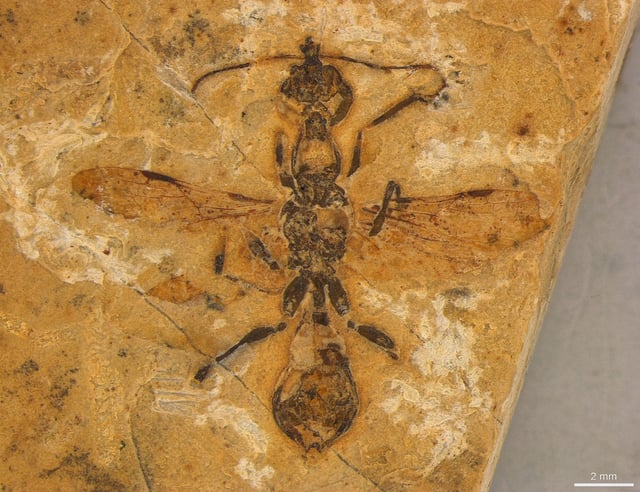Overview
- Researchers have confirmed Vulcanidris cratensis, a 113-million-year-old fossil from Brazil, as the oldest undisputed ant specimen.
- The fossil belongs to the extinct subfamily Haidomyrmecinae, or 'hell ants,' known for their scythe-like jaws and vertical mandible movement.
- This discovery pushes back the confirmed timeline of ant evolution by 13 million years, predating previous fossils from France and Myanmar.
- Advanced micro-CT imaging revealed the ant's specialized predatory anatomy, including upward-pointing jaws used for impaling prey.
- The finding highlights the early global distribution of ants and underscores the value of reexamining museum collections for evolutionary insights.
